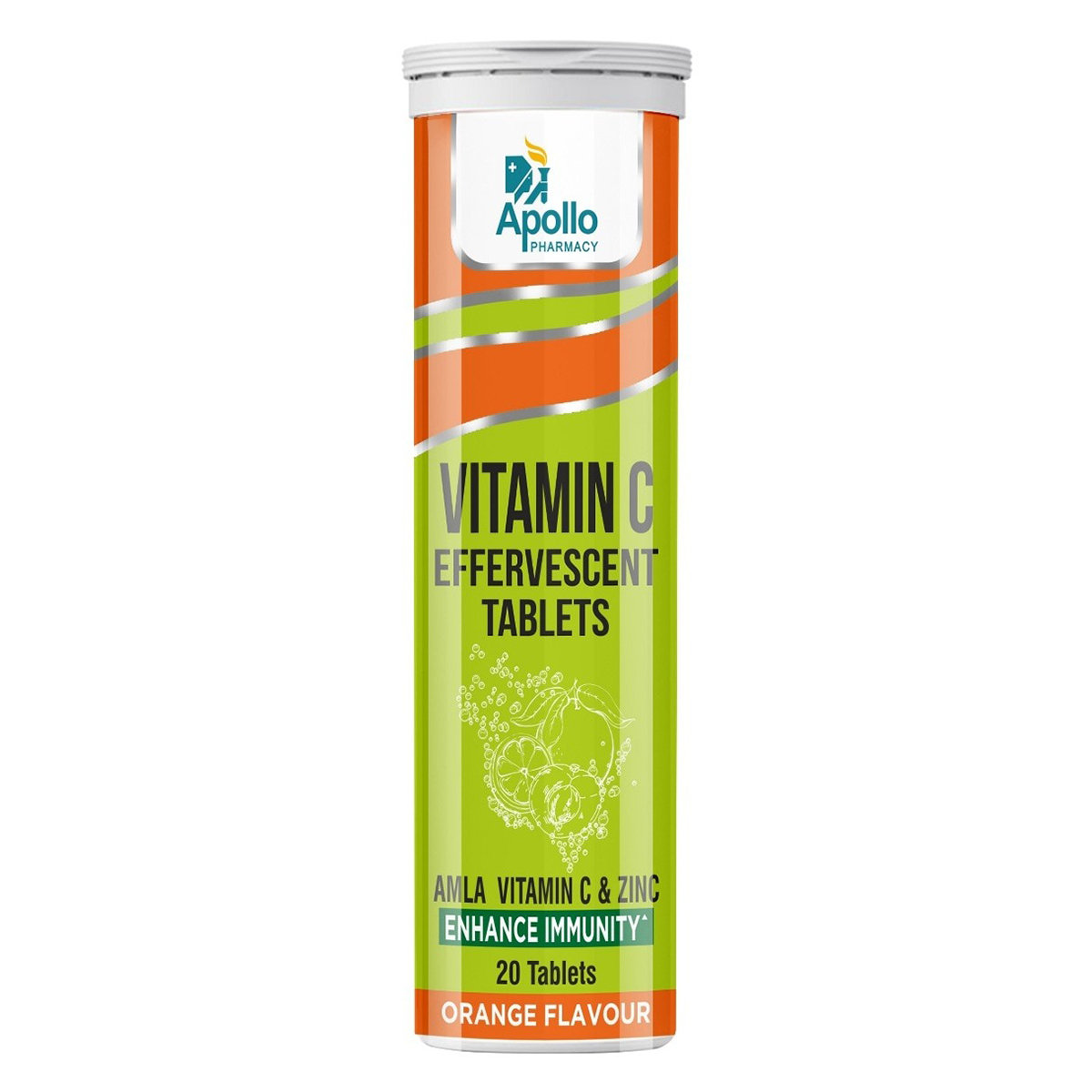Femoston Tablet
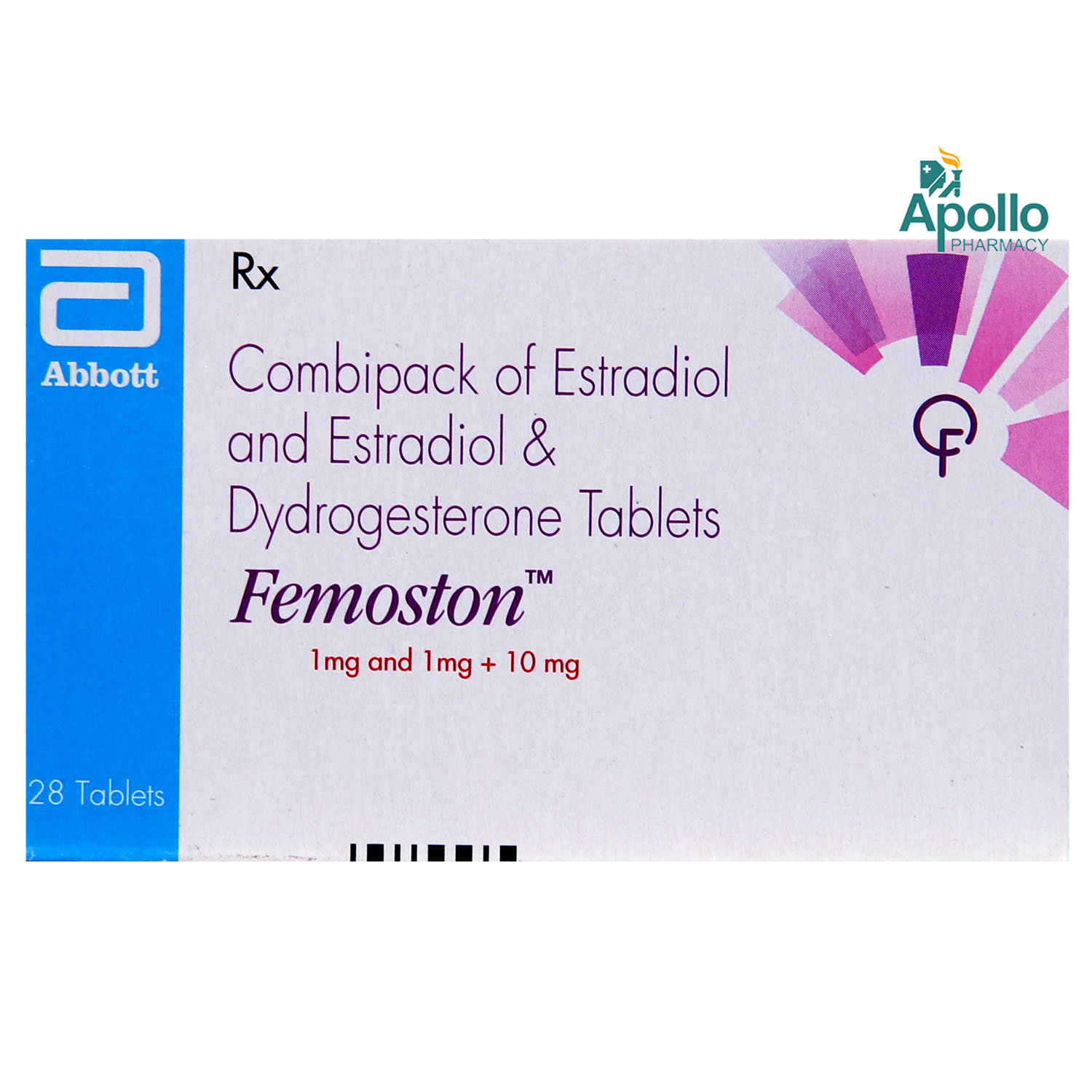

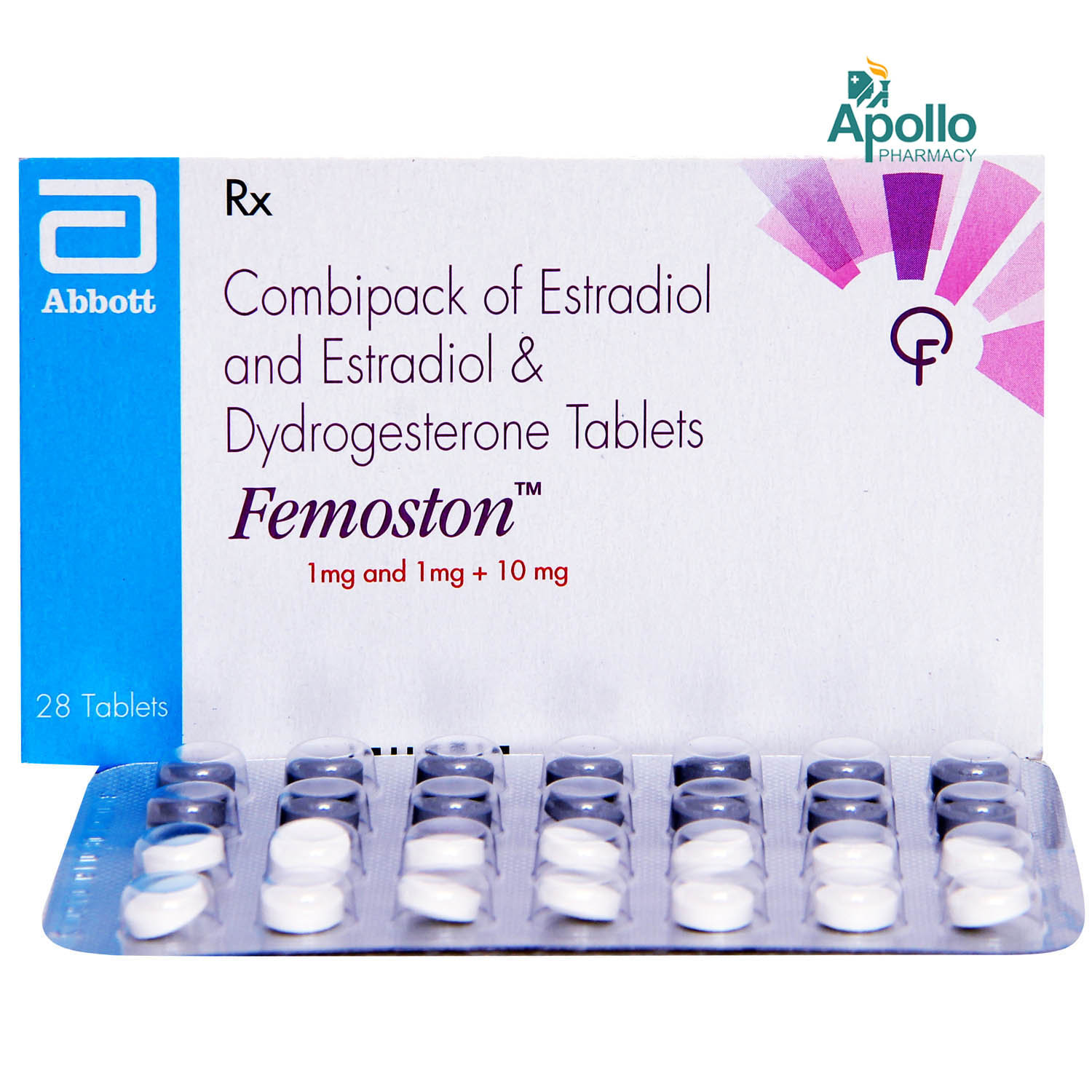
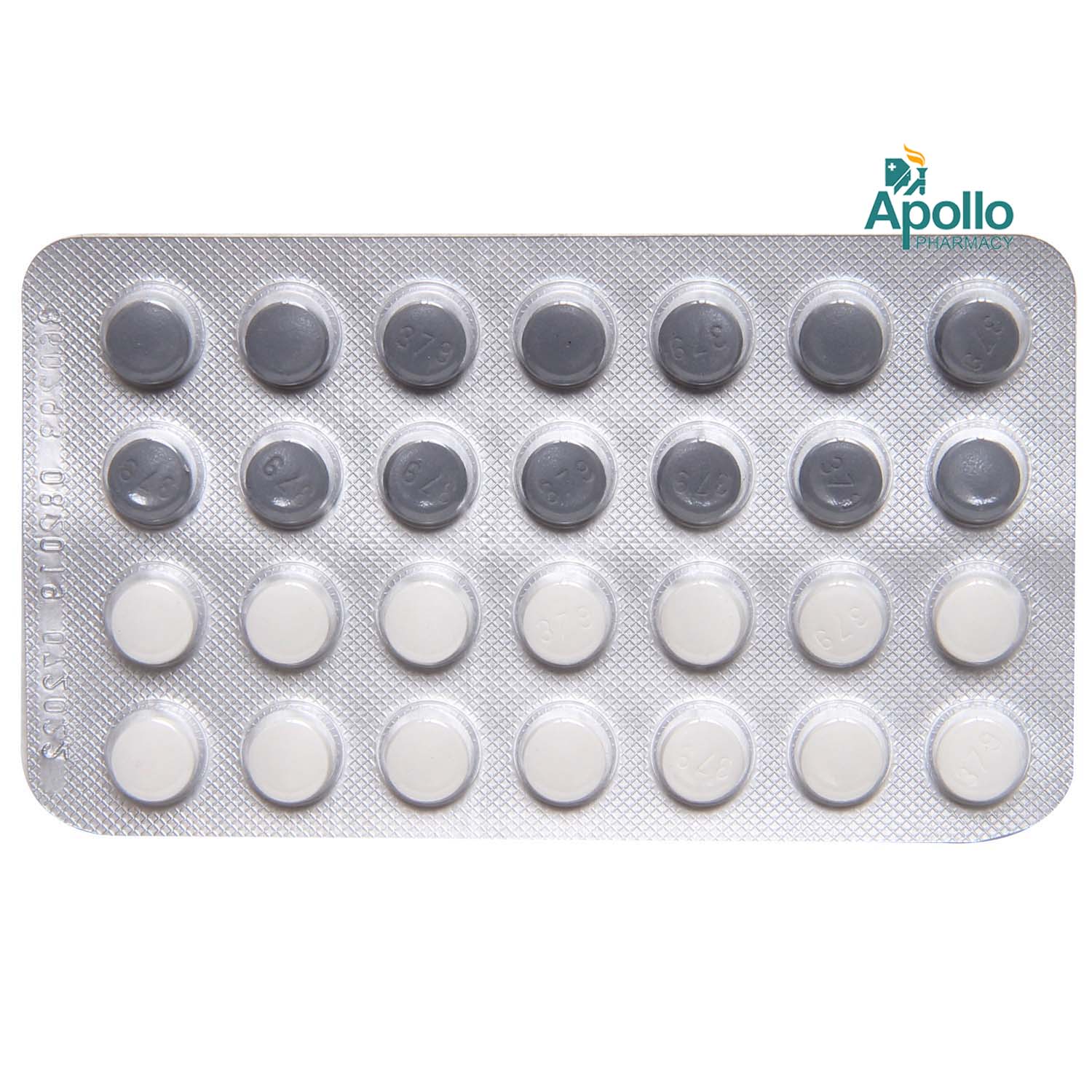
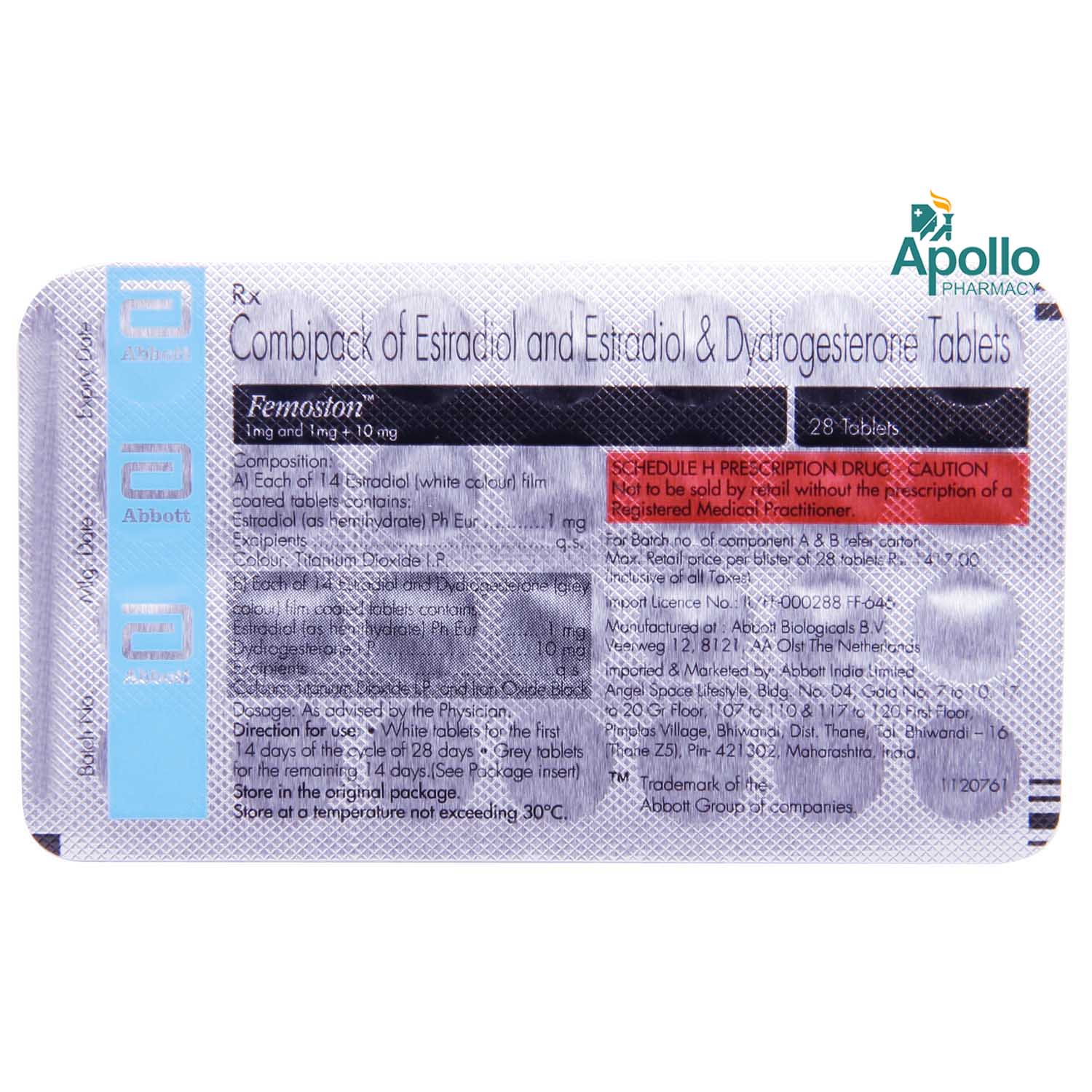
MRP ₹1328
(Inclusive of all Taxes)
₹199.2 Cashback (15%)
know your delivery time
Provide Delivery Location
Composition :
Manufacturer/Marketer :
Consume Type :
Expires on or after :
Return Policy :

Secure Payment

Trusted by 8 Crore Indians

Genuine Products
Therapeutic Class
Country of origin
Manufacturer/Marketer address
Author Details
We provide you with authentic, trustworthy and relevant information
Disclaimer
Alcohol
Safe if prescribed
Avoid consumption of alcohol with Femoston Tablet as it may increase the risk of breast cancer and delay healing.
Pregnancy
Consult your doctor
Femoston Tablet is only recommended for postmenopausal women. Therefore, avoid taking Femoston Tablet and consult a doctor if you are pregnant.
Breast Feeding
Consult your doctor
Avoid taking Femoston Tablet if you are breastfeeding and consult a doctor.
Driving
Safe if prescribed
Femoston Tablet usually does not affect your ability to drive or operate machinery.
Liver
Consult your doctor
Take Femoston Tablet with caution, especially if you have a history of liver diseases/conditions. The dose may be adjusted by your doctor as required.
Kidney
Consult your doctor
Take Femoston Tablet with caution, especially if you have a history of kidney diseases/conditions. The dose may be adjusted by your doctor as required.
Children
Safe if prescribed
Femoston Tablet is not recommended for children as it is intended for use in postmenopausal women.
About Femoston Tablet
Femoston Tablet is a hormone replacement therapy (HRT) used to treat postmenopausal symptoms and prevent osteoporosis (weak and brittle bones) caused by menopause in women. Postmenopause is a condition in which women have not had a period for 12 months or longer. The oestrogen levels decrease in postmenopausal women resulting in symptoms such as hot flushes (hot neck, face and chest). Osteoporosis is a bone disease that weakens and thins bones by decreasing bone density which is common in post-menopausal women.
Femoston Tablet contains two female hormones, namely, Estradiol and Dydrogesterone. Estradiol works by replacing the falling levels of oestrogen in the body and thus helps to reduce menopause symptoms. Dydrogesterone works by reducing the overgrowth of the womb lining. Together, Femoston Tablet helps treat postmenopausal symptoms and osteoporosis.
Take Femoston Tablet as prescribed by your doctor. You are advised to take Femoston Tablet for as long as your doctor has prescribed it for you based on your medical condition. In some cases, you may experience stomach pain, headache, breast pain or tenderness and back pain. Most of these side effects of Femoston Tablet do not require medical attention and gradually resolve over time. However, if the side effects persist or worsen, please consult your doctor.
If you are allergic to Femoston Tablet or any other medicines, please tell your doctor. Avoid taking Femoston Tablet if you are pregnant or breastfeeding and consult a doctor. Femoston Tablet is not recommended for children. You are advised to avoid alcohol consumption with Femoston Tablet as it may increase the risk of breast cancer. If you have premature menopause, inform your doctor before taking Femoston Tablet so that the risks and benefits may be compared.
Uses of Femoston Tablet
Medicinal Benefits Mweb
Key Benefits
Femoston Tablet contains Estradiol and Dydrogesterone used to treat postmenopausal symptoms and prevent osteoporosis (weak and brittle bones) caused by menopause in women. Estradiol restores the falling levels of oestrogen in the body and thus helps to reduce menopause symptoms. Dydrogesterone decreases the overgrowth of the womb lining. Also, Femoston Tablet prevents osteoporosis in postmenopausal women and prevents bone loss and fractures.
Directions for Use
Side Effects of Femoston Tablet
- Stomach pain
- Headache
- Breast pain or tenderness
- Back pain
Drug Warnings
If you are allergic to Femoston Tablet or any other medicines, please tell your doctor. Avoid taking Femoston Tablet if you are pregnant or breastfeeding and consult a doctor. Femoston Tablet is not recommended for children. If you have premature menopause, inform your doctor before taking Femoston Tablet so that the risks and benefits may be compared. Avoid taking Femoston Tablet if you have recently had a stroke, heart attack or angina (chest pain). If you have very high levels of fat (triglycerides) in blood, inform your doctor before taking Femoston Tablet . You are recommended to avoid alcohol consumption with Femoston Tablet as it may increase the risk of breast cancer. If you experience sudden chest pain, difficulty breathing, or painful swelling and redness of legs, stop taking Femoston Tablet and consult a doctor immediately as these might be signs of a blood clot.
Drug-Drug Interactions
Drug-Drug Interactions
Login/Sign Up
When Etodolac is taken with Bivalirudin, the risk or severity of bleeding and haemorrhage increases.
How to manage the interaction:
Taking Bivalirudin with Femoston Tablet can cause an interaction, consult a doctor before taking it. Do not discontinue any medications without a doctor's advice.
Taking thalidomide together with Femoston Tablet may increase the risk of blood clots and other complications.
How to manage the interaction:
Although taking Femoston Tablet and thalidomide together can result in an interaction, it can be taken if a doctor has prescribed it. However, consult the doctor immediately if you experience symptoms such as chest pain, shortness of breath, difficulty breathing, coughing up blood, sudden loss of vision, pain, redness or swelling in an arm or leg, and numbness or weakness on one side of the body. Do not discontinue any medications without consulting a doctor.
Co-administration of Femoston Tablet with Tranexamic acid can increase the risk of blood clots.
How to manage the interaction:
Taking Femoston Tablet with Tranexamic acid can lead to an interaction; however, it can be taken only if a doctor has advised it. If you experience symptoms such as chest pain, shortness of breath, difficulty breathing, coughing up blood, sudden loss of vision, pain, and numbness or weakness on one side of the body contact a doctor immediately. Do not discontinue any medications without consulting a doctor.
Femoston Tablet may interfere with anastrozole's function and make it less effective in treating your condition.
How to manage the interaction:
Co-administration of Anastrozole with Femoston Tablet can result in an interaction, but it can be taken if a doctor has advised it. Do not stop using any medications without a doctor's advice.
Coadministration of Femoston Tablet and Lenalidomide can increase the risk of blood clots.
How to manage the interaction:
Although there is an interaction between lenalidomide and Femoston Tablet, it can be taken if your doctor has advised it. However, if you experience chest pain, shortness of breath, difficulty breathing, coughing up blood, sudden loss of vision, pain, redness or swelling in an arm or leg, and numbness or weakness on one side of the body, contact your doctor immediately. Do not discontinue any medications without consulting a doctor.
Using Femoston Tablet with Exemestane may interfere with Exemestane's activity and make it less effective in treating the condition.
How to manage the interaction:
Although there is a possible interaction between Exemestane and Femoston Tablet, you can take these medicines together if prescribed by a doctor. Do not stop using any medications without talking to a doctor.
Letrozole may have a negative effect when used with Femoston Tablet, making it less effective in treating your disease.
How to manage the interaction:
Although taking Letrozole and Femoston Tablet together can result in an interaction, it can be taken if a doctor has prescribed it. Do not discontinue any medications without a doctor's advice.
When taken in combination, clindamycin can lower the amount or action of Femoston Tablet.
How to manage the interaction:
Co-administration of Femoston Tablet with Clindamycin can result in an interaction, but it can be taken if a doctor has advised it. Do not stop using any medications without a doctor's advice.
The usage of Femoston Tablet with dantrolene might have significant adverse effects on your liver.
How to manage the interaction:
Taking Femoston Tablet with Dantrolene together can result in an interaction, but it can be taken if a doctor has advised it. However, if you have a fever, chills, joint pain or swelling, severe fatigue or weakness, unusual bleeding or bruising, skin rash or itching, lack of appetite, nausea, vomiting, or yellowing of the skin or whites of your eyes, consult the doctor immediately. Do not discontinue any medications without consulting a doctor.
Carfilzomib can cause serious blood clots and taking it alongside Femoston Tablet may enhance the risk.
How to manage the interaction:
Co-administration of Femoston Tablet with Carfilzomib can result in an interaction, but it can be taken if a doctor has advised it. However, if you experience symptoms like chest pain, shortness of breath, difficulty breathing, coughing up blood, sudden loss of vision, pain, redness, or swelling in an arm or leg, or numbness or weakness on one side of the body, consult a doctor immediately. Do not discontinue any medications without consulting a doctor.
Drug-Food Interactions
Drug-Food Interactions
Login/Sign Up
Drug-Diseases Interactions
Drug-Diseases Interactions
Login/Sign Up
Drug-Drug Interactions Checker List
- PHENYTOIN
- CARBAMAZEPINE
- PHENOBARBITAL
- RIFABUTIN
- RIFAMPICIN
- EFAVIRENZ
- NELFINAVIR
- RITONAVIR
- NEVIRAPINE
- FENTANYL
- THEOPHYLLINE
- CYCLOSPORINE
- TACROLIMUS
Habit Forming
Special Advise
- Regular breast screening is recommended while taking Femoston Tablet .
- Check your breasts regularly for any changes in the nipple, dimpling of the skin or any lumps.
Diet & Lifestyle Advise
- Include dairy products like milk, yoghurt, cheese, or milk-based custard in your diet.
- Eat daily a serving of broccoli, cabbage, bok choy (Chinese white cabbage), spinach, and other green leafy vegetables.
- Snack on calcium-rich nuts like Brazil nuts or almonds.
- Sprinkle sesame seeds over your food, vegetables, and salads. Sesame seeds are high in calcium.
- Avoid or reduce the intake of caffeine, soft drinks, and alcohol that inhibit calcium absorption.
- Replace the meat with tofu or tempeh for extra calcium in your food.

Have a query?
Buy best Fertility & Anti Fertility Agents products by
Akumentis Healthcare Ltd
Abbott India Ltd
Cipla Ltd
Maneesh Pharmaceuticals Ltd
Ar-Ex Laboratories Pvt Ltd
TTK Healthcare Ltd
Bayer Zydus Pharma Pvt Ltd
Bharat Serums and Vaccines Ltd
Cadila Pharmaceuticals Ltd
Corona Remedies Pvt Ltd
DKT India Ltd
Dr Reddy's Laboratories Ltd
Empiai Pharmaceuticals Pvt Ltd
Eris Life Sciences Ltd
Glenmark Pharmaceuticals Ltd
Jagsonpal Pharmaceuticals Ltd
Koye Pharmaceuticals Pvt Ltd
Leeford Healthcare Ltd
Macleods Pharmaceuticals Ltd
Merck Ltd
Mylan Pharmaceuticals Pvt Ltd
Pfizer Ltd
Sanzyme Pvt Ltd
Shield Healthcare
Solvay Pharma India Ltd
Sun Pharmaceutical Industries Ltd
Torrent Pharmaceuticals Ltd
Zogenix Health Care Pvt Ltd
Customers Also Bought
Recommended for a 30-day course: 4 Strips


_0.jpg?tr=q-85)


